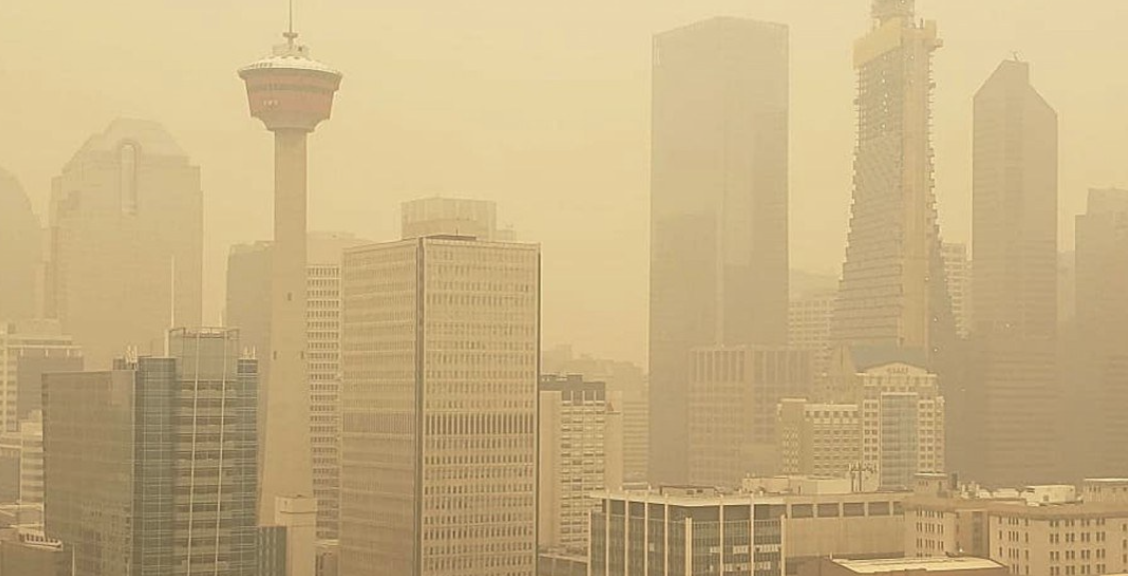
When we think about the effects of air pollution on our health, we immediately think of the respiratory system. It's a fact, isn't it? But, we didn't realize that it could also be very bad for our circulatory system, where our heart can be found. This threat to our health is very alarming, so let's discuss it and go deeper into its roots.
WHO says pollution is the main cause of death from coronary heart disease, with about 24% to 25% of people dying from strokes. We can't help but notice how particles and gases from cars, factories, dust, allergens, mold spores, volcanoes, and wildfires are quickly taking over and polluting our homes. Particles in the air that we most likely inhale can enter our circulatory system or even our major organs, such as the heart. This can cause problems or even death. As we know, the heart pumps the blood that brings oxygen and nutrients to the rest of the body. When this organ has a problem, it can have a big impact on how the rest of the body works. That's why we need to deal with this as soon as possible. Long-term exposure to polluted air increases the risk of irregular heartbeats, heart attacks, and strokes, as well as death. These things can happen to anyone, even if they're only exposed to air pollution for a short time and don't get sick as often.
Pollutants in the air can harm the blood vessels through which blood flows. This could cause problems with the cardiovascular system that could be very bad for you. Particulate matter (PM2.5) and particulate matter get into the lungs more deeply than other pollutants, which makes them a major risk for heart health. If a particle has a diameter of less than 2.5 microns, it is called PM2.5. If it has a diameter of less than 0.1 microns, it is ultrafine. A lot of volatile organic compounds and nitrogen oxides, such as nitrogen dioxide, are made when fossil fuels are burned. When they react with each other, ozone forms. Chest pain can happen even after just a few minutes, and long-term exposure is thought to make people sick. It has been found that sulfur dioxide, which has a chemical formula of SO2, can harm the heart. In fact, it comes out as a byproduct when fossil fuels are burned. Aside from SO2, black carbon is said to be one of the air pollutants that contribute to a greater risk of heart illness.

Source: https://dailyhive.com/calgary/calgary-air-quality-cigarettes-app-wildfire-smoke
A lot of the air contamination comes from things like burning trash or waste, diesel engines, fireplace and wood stove use, forest fires, coal and heavy oil heating systems. The sad thing is that these are still around because humans aren't very disciplined, even though some of them are already against the law. Because air pollutants are hard to get rid of, some groups of people are marked as vulnerable to this environmental problem. This group includes people who are already sick with heart or lung disease, as well as people who live where air pollution is most likely to come out. Toxicology experts say pregnant women who are exposed to air pollution caused by vehicles are more likely to experience abnormal changes in their blood pressure. This can lead to the death of pregnant women or their unborn children, and it's even more heartbreaking to lose both of them at the same time.
With all this, we should help ourselves and everyone else breathe easier. Make sure to keep an eye on the air quality in your neighborhood and at work to make this happen. If you have to go outside, the best way to stay safe is to wear a high-quality mask and stay away from polluted areas if you can. For good indoor air quality, change your air filters often, use an air purifier, and use more energy-efficient appliances. Let's breathe freely and do our part to reduce pollution in the air and that should begin now.












